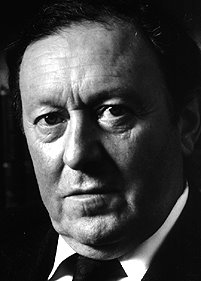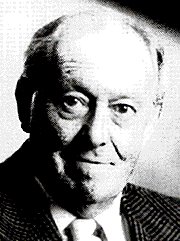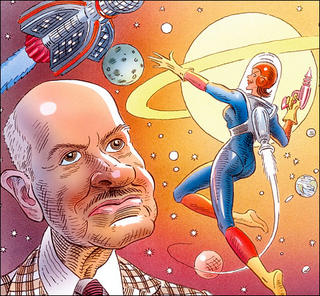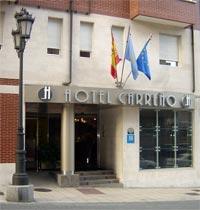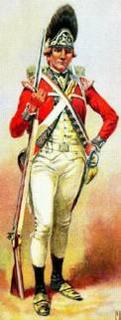Killed by Insurgents, these Soldiers Get No Honour in their Burial in Philadelphia
By Richard Carreño
The two officers, a brigadier-general and a lieutenant colonel, were thousands of miles from home, when they were killed suddenly by rag-tag insurgents. Like other renegade terrorists in the battle-scarred land-- itself torn by myriad and divided loyalties -- the insurgents had no respect for the niceties of conventional war. No one knew when or how they would strike.
The soldiers' commanding officer, a General Howe, was consumed by grief, remembering his comrades as gallant and with 'approved merit.' Howe also saw to it that they were buried with full military honors.
He could not have know then that they, their service, and their honor would be promptly forgotten.
Each year, on Memorial Day, no recognition memorializes their sacrafice. No flags hover over their graves. No eternal flame, like the one at Washington Square, burns forever in their honor.
Instead, their graves are grown over with unmowed grass and weeds, an unsightly bush masks a burial marker, black moss obliterates a burial tablet, and barbed wire (seemingly out of nowhere) is wrapped on a iron fence that rings the burying ground. The fence, at least, is padlocked.
The miserable plight of these fallen heroes might be unique, even a shocking descretation, except for one thing -- if they weren't the enemy.
Iraqi insurgents? Taliban rebels? Al-Qaeda sucide bombers?
Hardly. The soldiers, buried in all-but-forgotten plot in Green Lane, off North Broad Street, just east of Germantown in Fern Rock, were anything but. In fact, as British officers and gentlemen, Brigadier-General James Tanner Agnew and Lieutenant Colonel John Bird -- 'lobsters' to their enemy (and that, incidentally, would be us) -- were among the lot running the place. Philadelphia, the second-largest English-speaking city outside of London and the principal center of British-American trade and culture was, in 1777, in British hands.
****
In 1777, victory in the War of Independence was far from certain. Nothing was more evocative of this precarious position than the days leading up to the defense of the nation's principal city, Philadelphia. In the early evening darkness of 3 October the game was afoot as Washington and his troops advanced northeast through Mount Airy to meet the Redcoats at Germantown.
At first, success was Washington's. The Revolutionaries crashed through the picket lines of British grenadiers and light infantry. Through the night, muskets blasted. Smoke blanketed the small community of German settlers.
General Sir William Howe, commander of the British forces, was abashed. 'For shame, Light Infantry!' he exclaimed as his troops retreated.
The following day, 4 October, the British regrouped. Howe was respected by his men -- even Washington held him in high regard -- and his condemnation of the previous day's action indeed seeded his troops with shame. The Battle of Germantown was now fully engaged. The British troops rallied. The Americans fell back. Philadelphia was within the British grasp.
Valor was exhibited by all. But to those who remembered that day no greater heroism was displayed than that by Lieutenant-Colonel Bird and General Agnew, the British commanders of separate grenadier regiments. In the heat of battle, both fell in that day of 'slaughter,' as it was recalled.
No one is certain where Bird met his end. Reports put Agnew as near the British HQ, Grumplethrope House, to where in he was carried back and died. (The house is still there, at 5267 Germantown Road. So is Agnew's blood, a stain on the wooden floor).
Almost immediately, Bird and Agnew were commended by Howe. 'Both of whom are much lamented as officers of experience and approved merit,' he wrote in an official report.
Despite victory, and the daunting task of capturing and governing Philadelphia, Howe was still concerned that his dead be buried safely, and that their remains not be disturbed by rowdy, angry American locals. Among his chief concerns was that his two top commanders receive burials with appropriate honors.
How Bird and Agnew wound up in a small resting place in Fern Rock was thanks to Dr. George de Benneville, a transplanted Huguenot and physician. Though he was a sympathisizer of the American cause, De Benneville, a Godly man who went on to become the founder of the Universalist Church in America, made no distinction when treating the wounded or burying the dead. He told Howe that he'd be pleased to safeguard the remains of Bird and Agnew in his family plot, a burying ground measuring about 40-feet by 200-feet in Green Lane. The soldiers were re-interred there in May, 1778.
De Benneville was later buried in the plot, as well, in 1793.
Who knew?
*****
A friend, Harrison Miller, who used to live across from the cemetery, introduced me to site not long ago, and, when treading through the plot (I had to climb over the fence), I was struck by the similarities and contrasts that exist between our regard to battle dead today and 230 years ago.
I kept thinking, too, how our troops in Iraq seem today to be in same military guagmire as the British then. Like the US today, they were then the world's preeminent superpower. And, like today, stretching military might thousands of miles away in hostile lands. Are we, too, destined to defeat?
*****
The Bird and Agnew gravesite is, as far as I can tell, a one-of-a-kind. I've checked, I've Googled, and, yes, there are other individual burial sites for British dead. But no one seems to be sure who exactly was buried there, where exactly was the actual burial site, and, when exactly did the burial take place. Even in Washington Square, where an eternal flame burns in memory of the Revolutionary War dead, under the statute of the Father of Our Country, it burns only for our fallen. This, despite the fact hundreds of British prisoners -- in all, about 2,000 colonists and Brits -- were, during the War years, plowed under the Square in unmarked graves.
Though a proper burial site, the De Benneville grave still remains an anomaly -- shamefully so!, as General Howe might cry -- because of its neglect. Long forgotten. Long ignored. In fact, the last official recognition of the place was, seemingly, more than 100 years ago. A memorial slab over the grave, honoring the solidiers, reads, in part:
'Resuiescat in Pace
'This Stone was Erected/in their Memory by/His Britannic Majesty's Government/October 4th 1903.'
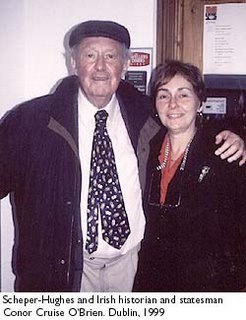 My first encounter with Dr. Conor Cruise O'Brien was at NYU when I was a callow reporter at The Washington Square Journal, the University's undergraduate daily. With a circulation at the time -- the late 1960s -- of more than 35,000, it was one of largest dailies in New York City -- in fact, if I recall correctly, the third or fourth largest daily during a newspaper strike of the period. It was during this time that I became the paper's editor. I digress.
My first encounter with Dr. Conor Cruise O'Brien was at NYU when I was a callow reporter at The Washington Square Journal, the University's undergraduate daily. With a circulation at the time -- the late 1960s -- of more than 35,000, it was one of largest dailies in New York City -- in fact, if I recall correctly, the third or fourth largest daily during a newspaper strike of the period. It was during this time that I became the paper's editor. I digress.